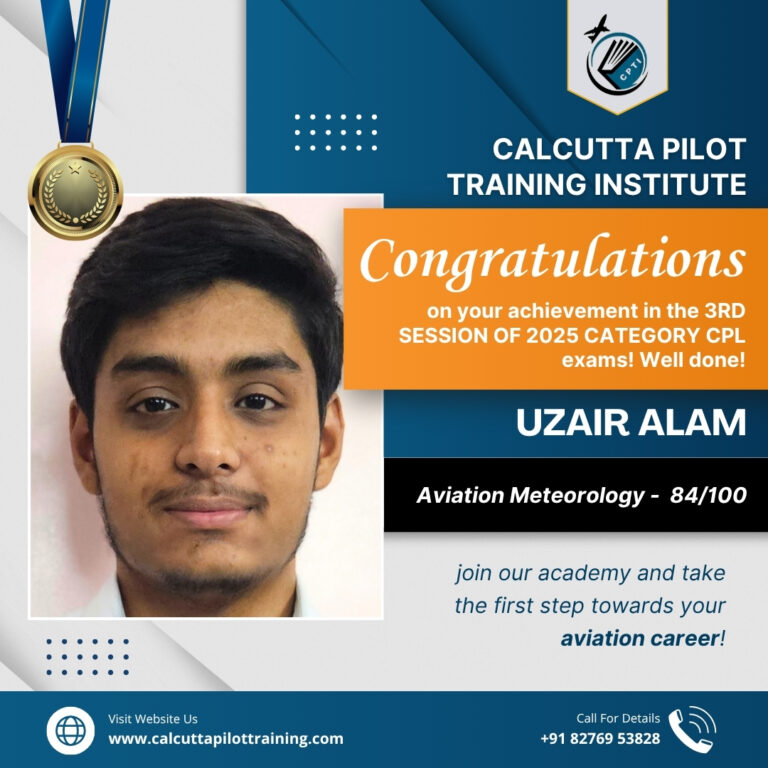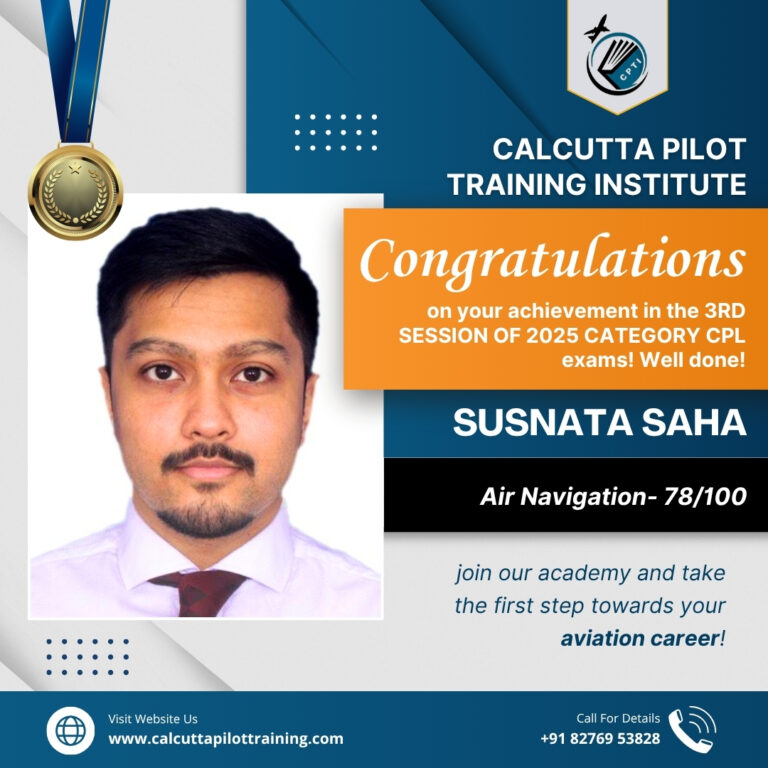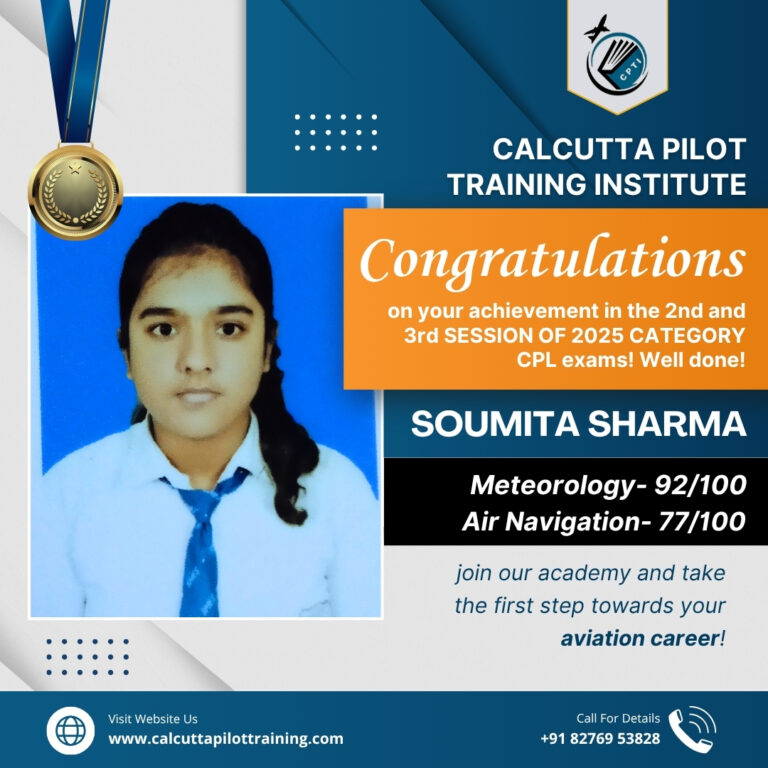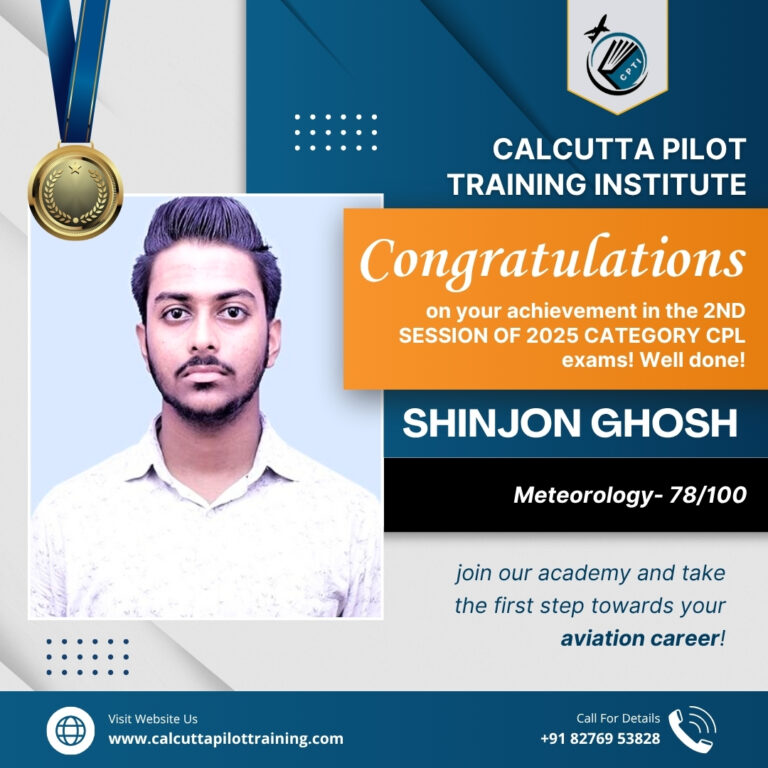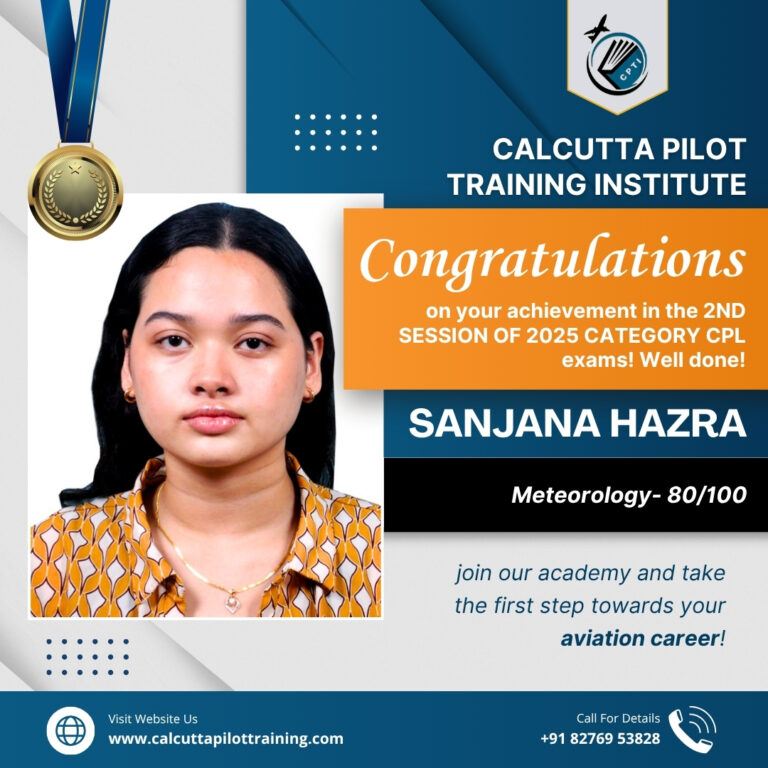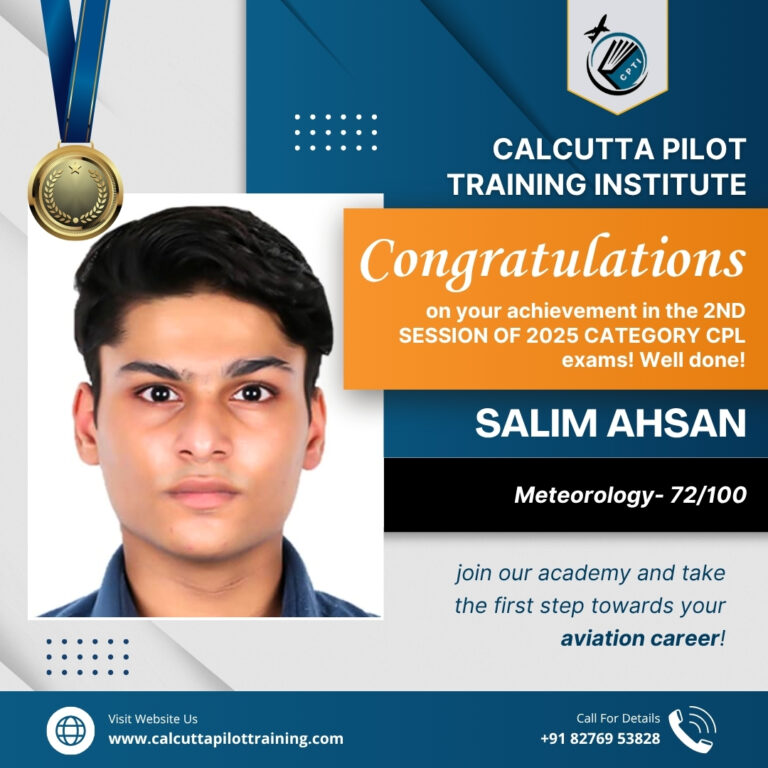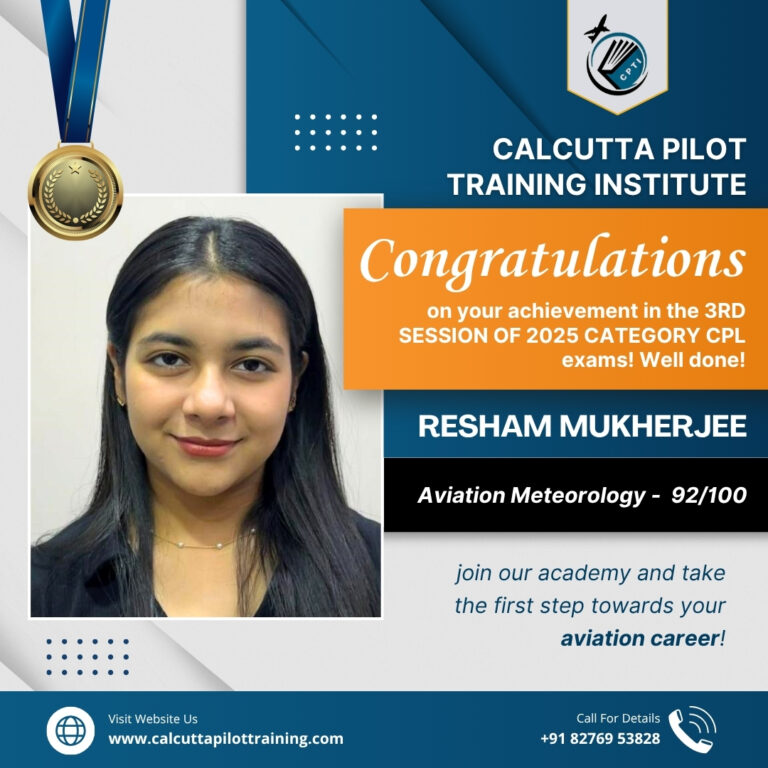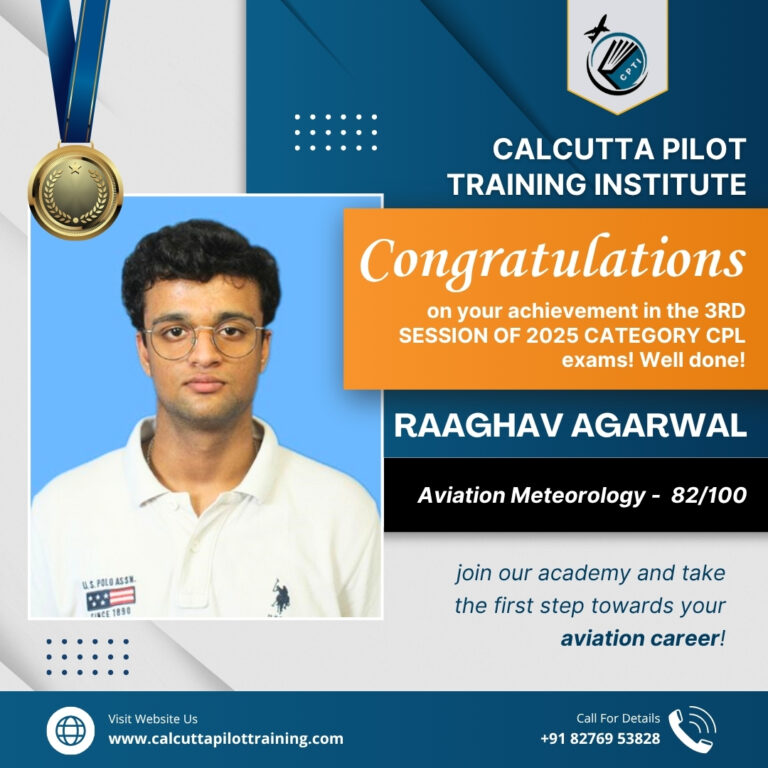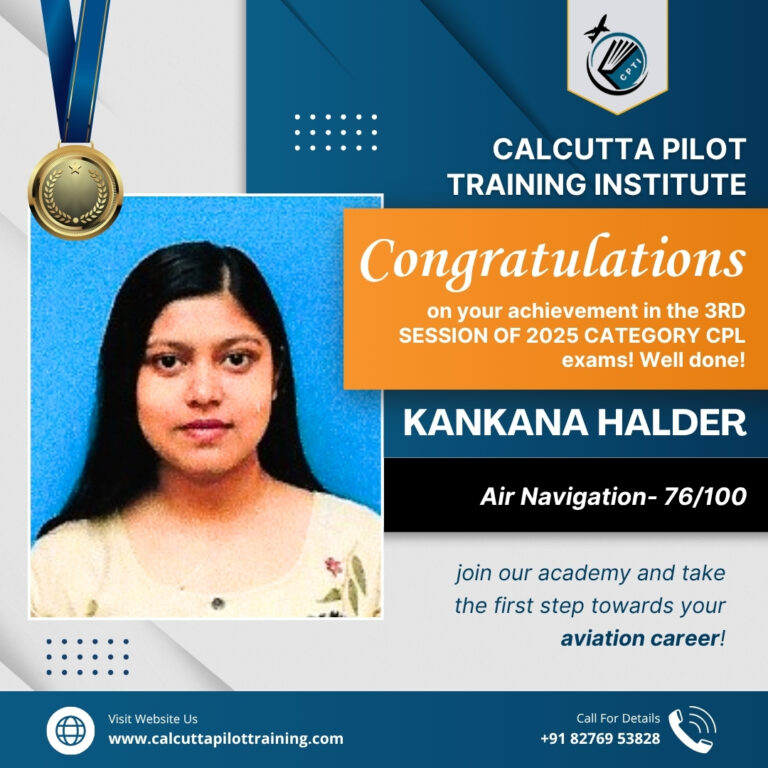Welcome To
Calcutta Pilot Training Institute
Let Your Dreams Take Flight

1000+ commercial pilots





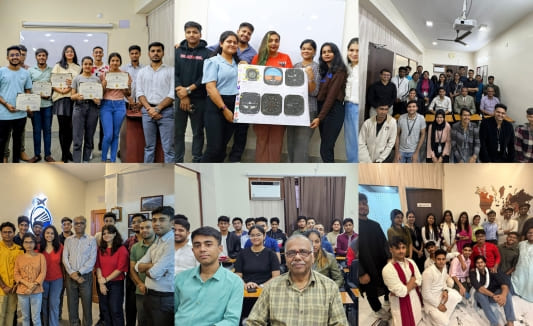
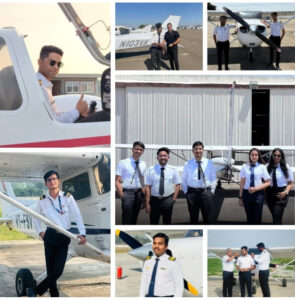
About us
A Dedicated Institute for DGCA & RTR(A) Pilot Ground Training
Calcutta Pilot Training Institute (CPTI) is a premier pilot ground training institute in Kolkata, India, dedicated to preparing aspiring pilots for DGCA and WPC RTR(A) examinations with precision, discipline, and academic excellence.
We focus exclusively on high-quality ground training, ensuring that students build strong theoretical knowledge before entering flight training. Our structured teaching approach, experienced faculty, and exam-oriented methodology have helped students achieve consistent success across India.
At CPTI, we believe that a pilot’s career is built on discipline, clarity, and strong fundamentals — and that begins in the classroom.
Courses offered by Calcutta Pilot Training Institute
We offer comprehensive DGCA-aligned ground training programs designed to meet current aviation standards and examination requirements.
Commercial Pilot License Training
Course Duration: 5 months
Airline Transport Pilot License Training
Course Duration: 2 months
Private Pilot Licence Training
Course Duration: 2 months
Cadet pilot and IGRUA Preparation
Course Duration: 2 months
Aviation Meteorology
Course duration: 1.5 months
Air Regulation
Course Duration: 2 months
Air Navigation
Course Duration: 2 months
Technical General and Specific
Course Duration: 3 months
RTR(A)
Course Duration: 1 month
Why Choose CPTI?
Experienced Team of Commercial Pilots
Online & Offline Classes
Guest Lecture by Aviation Experts
Regular DGCA Model Exams
Exclusive Customized Study Materials with Airline Interview Question Sets
600+ Hours of Training per Batch
100% Student Satisfaction

Your Trusted Partners in Flight Training Excellence
Our programs deliver hands on training on advanced simulator and expert mentorship to help you master every aspect of flying.
Our Blogs

Aviation Career Opportunities: Soaring Towards a Bright Future
The aviation industry is one of the most dynamic and exciting field, offering numerous career opportunities for aspiring professionals. From becoming a commercial pilot to working as an air traffic controller, aviation opens doors to a high-flying career with immense growth potential.

Why Radio Navigation Training is a Must for Pilots
In the ever-evolving world of aviation, where precision and safety are paramount, radio navigation plays an indispensable role in every pilot’s journey. From guiding aircraft through complex airspaces to ensuring safe landings in challenging conditions, mastering radio navigation is no longer optional—it’s a necessity.

Top 10 Tips to Pass Your DGCA Pilot Exams on the First Attempt
Passing the DGCA pilot exams is a crucial step in your journey to becoming a certified pilot in India. The Directorate General of Civil Aviation (DGCA) has rigorous standards to ensure that only the most qualified candidates receive their pilot licenses.


